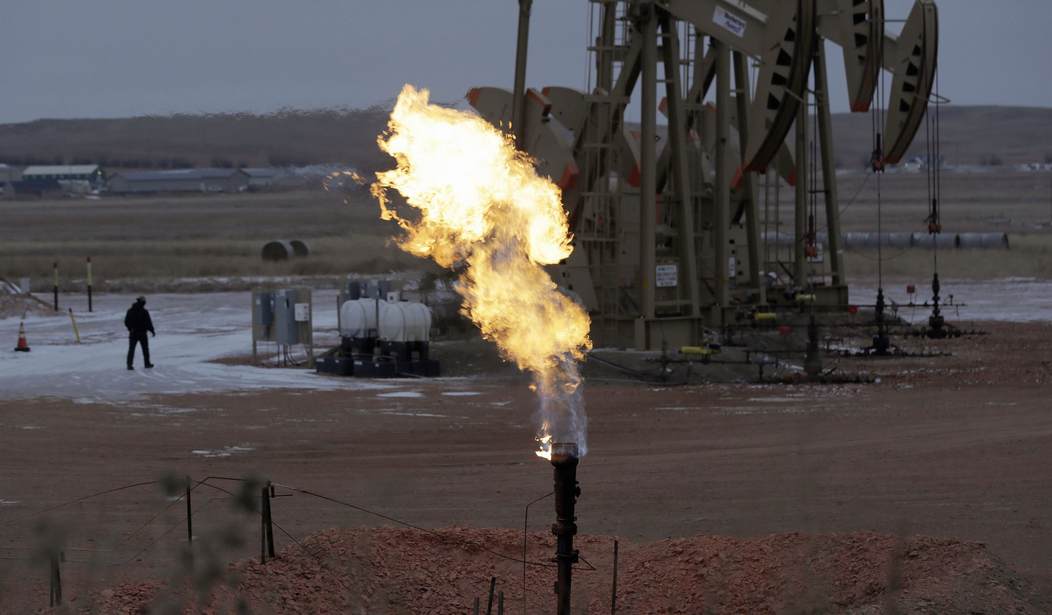Winter is on the way here in the northeast, as I was reminded when the local weatherman told me that it might snow here this week. In the middle of October. (Who do I see about filing a lawsuit?) But the annoyance of potentially having to break out the snow shovels before Halloween has arrived is small potatoes compared to what may be coming in a couple of months. Power grid operator ISO New England issued a warning to consumers this week about the effects that a particularly cold winter (as is being projected) could have on heating and electrical power consumption limits. The northeast relies heavily on natural gas for home and business heating needs. But many of the power plants in the region also run on natural gas. As the supplies are drained to dangerous levels, choices will have to be made about where to direct the available gas. And to avoid having people freezing to death in their homes, the lights may have to go out in a series of rolling blackouts. (Wall Street Journal)
New England power producers are preparing for potential strain on the grid this winter as a surge in natural-gas demand abroad threatens to reduce supplies they need to generate electricity.
New England, which relies on natural-gas imports to bridge winter supply gaps, is now competing with European countries for shipments of liquefied natural gas, following Russia’s halt of most pipeline gas to the continent. Severe cold spells in the Northeast could reduce the amount of gas available to generate electricity as more of it is burned to heat homes.
The region’s power-grid operator, ISO New England Inc., has warned that an extremely cold winter could strain the reliability of the grid and potentially result in the need for rolling blackouts to keep electricity supply and demand in balance. The warning comes as executives and analysts predict power producers could have to pay as much as several times more than last year for gas deliveries if severe weather creates urgent need for spot-market purchases.
The reality is that the normal flow of natural gas into the region is limited and has been unable to keep up with increasing demand levels over the past decade. That means that utility operators have to rely on liquid natural gas (LNG) imports to make up the difference during peak demand periods. During such times, LNG accounts for as much as one-third of the total natural gas used for heating and electricity.
But why is that? You won’t need an ace detective to figure that out. Utility companies in New York, Connecticut, and other New England states projected supply shortfalls more than a decade ago. Fortunately, New York and Pennsylvania sit on some of the richest natural gas resources in the country, found in the Marcellus shale deposits. The companies requested new, higher-volume pipelines to carry natural gas to meet the spiraling demands of New York City, particularly at the furthest end of the gas lines in Long Island. They also urged the development of local gas production to feed those lines. Similar situations were noted all across New England.
Instead of doing that, New York refused to approve new gas lines and passed a moratorium on natural gas drilling in the state. This brings us to the current situation where the same amount of natural gas is being used, but increasing amounts of it come in the form of LNG that has to be imported either from other regions of the country or from overseas. The energy crunch in Europe is eating up a lot of the available LNG, so there may not be enough for New England this winter.
Further, as anyone should learn in their Economics 101 class, when the supply of a given product declines without a corresponding decrease in demand, the price goes up. So even if they do manage to bring in enough LNG to keep people’s homes warm and keep the lights on, their energy bills are going to be a lot higher this winter. And we’re talking about increases in the range of twice what people are paying now, if not more. If that plan fails, New Englanders should stock up on candles and batteries, because the utility companies will need to impose rolling blackouts to prevent the energy grid from collapsing.
We have some of the most expansive natural gas resources in the world right under our feet. And yet we’re looking at an energy shortage this winter. This was an entirely self-inflicted wound and the people who had no control over these energy policies will be the ones paying the price for it. Imagine people in the United States sitting at home and huddling for warmth in the dark. It’s a first-world country, right?







Join the conversation as a VIP Member